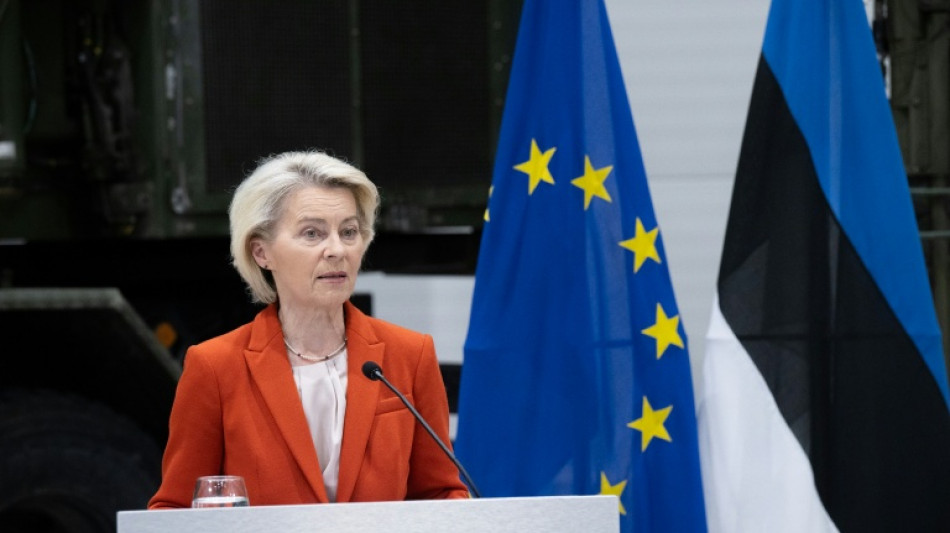

EU chief's plane hit by suspected Russian GPS jamming in Bulgaria
A plane carrying EU chief Ursula von der Leyen was hit by GPS jamming as it readied to land in Bulgaria and Russia was suspected to be behind the incident, the European Commission said Monday.
The commission said Bulgarian authorities believed Moscow was responsible for the incident on Sunday but it was not clear whether the aircraft was deliberately targeted as such attacks are common in the region.
"We can indeed confirm that there was GPS jamming," commission spokeswoman Arianna Podesta told a press conference.
The chartered flight landed safely at Plovdiv International Airport, in the south of the country, without having to change route.
Commission president Von der Leyen, 66, was in Bulgaria as part of a seven-country tour of "frontline" European Union states, which, sitting on the 27-nation bloc's eastern flank, are more exposed to Russian hybrid threats.
The region has experienced "a lot of such jamming and spoofing activities", a separate commission spokesperson said, adding it has sanctioned several companies believed to be involved.
"The Bulgarian authorities suspect this blatant interference was carried out by Russia," Podesta said.
- 'Threats and intimidations' -
The incident was confirmed by the Bulgarian government.
"During the flight carrying European Commission president Ursula von der Leyen to Plovdiv, the satellite signal transmitting information to the plane's GPS navigation system was neutralised," a government statement said.
"To ensure the flight's safety, air control services immediately offered an alternative landing method using terrestrial navigation tools," it said.
The Financial Times newspaper, which first reported the incident, said the plane was forced to land using paper maps.
The commission described von der Leyen's trip as a show of support for members "facing the challenges" of proximity with Russia or its ally Belarus.
"Threats and intimidations" were a "regular component of Russia's hostile behaviour," Podesta said.
"Of course, this will only reinforce even further our unshakable commitment to ramp up defence capabilities and support for Ukraine".
Europe has boosted military spending and is looking to improve defence readiness following Moscow's invasion of Ukraine.
The incident came as Western powers discuss how to guarantee Ukraine's security in case of a truce deal in the three-and-a-half year war.
US President Donald Trump moved to restore dialogue with Russia at the start of his second presidency, but diplomatic efforts to end the war have lost momentum.
Moscow continues to stall on a potential meeting between Russian President Vladimir Putin and Ukraine's Volodymyr Zelensky.
Ch.Luna--GBA



